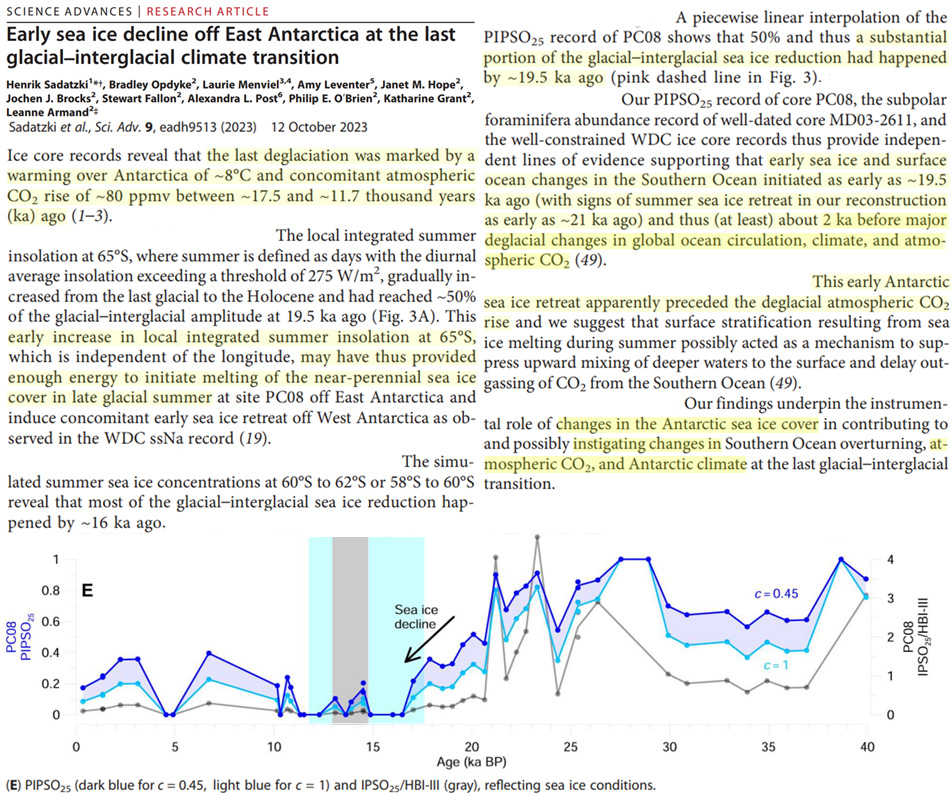The timing of the dramatic Antarctic sea ice decline during the last deglaciation suggests solar forcing and sea ice retreat “instigated” century-scale climate warming and atmospheric CO2 change. This would appear to challenge the perception CO2 plays a causal role in glacial-interglacial sea ice and climate changes.
From ~21,000 to 19,500 years ago, when CO2 was thought to have been at its lowest point in the Quaternary ice age (~180 ppm), the sea ice surrounding East and West Antarctica completed 50% of its eventual deglaciation-era decline (Sadatzki et al., 2023).
“[I]ndependent lines of evidence supporting that early sea ice and surface ocean changes in the Southern Ocean initiated as early as ~19.5 ka ago (with signs of summer sea ice retreat in our reconstruction as early as ~21 ka ago) and thus (at least) about 2 ka before major deglacial changes in global ocean circulation, climate, and atmospheric CO2.”
The increase in 65°S insolation during these millennia was deemed sufficient to drive this magnitude of sea ice retreat.
“This early increase in local integrated summer insolation at 65°S, which is independent of the longitude, may have thus provided enough energy to initiate melting of the near-perennial sea ice cover in late glacial.”
As the authors of the study point out, the timing of this early sea ice recession was at least 2,000 years before the Antarctic climate began warming (by a magnitude of an eventual 8°C), and before CO2 began rising (by 80 ppm) over the course of the ~5,800-year deglaciation phase (~17,500 to 11,700 years ago).
The millennial-scale lag not only suggests CO2 was not a contributing factor in Antarctic sea ice retreat, but that the the sea ice retreat may have been the factor sequentially “instigating” Antarctic warming and CO2 rise.
“Our findings underpin the instrumental role of changes in the Antarctic sea ice cover in contributing to and possibly instigating changes in Southern Ocean overturning, atmospheric CO2, and Antarctic climate at the last glacial–interglacial transition.“






Dear Pierre,
I would like to tell you something about this, but as I don’t have your e-mail, I would like to aks you for it here.
Afterwards this comment may be deleted due to contentlessness.
Thanks a lot, and best regards Christian
Did penguins and creatures elsewhere survive that massive sea ice retreat? If so, should people learn from the experience?
[…] New Study: Antarctic Sea Ice Completed Half Its Deglacial Retreat 1000s Of Years Before CO2 Began Ri… […]
[…] on the paper, the science web site No Tricks Zone said that the Antarctica time-lag not only suggested that CO2 was not a contributing […]